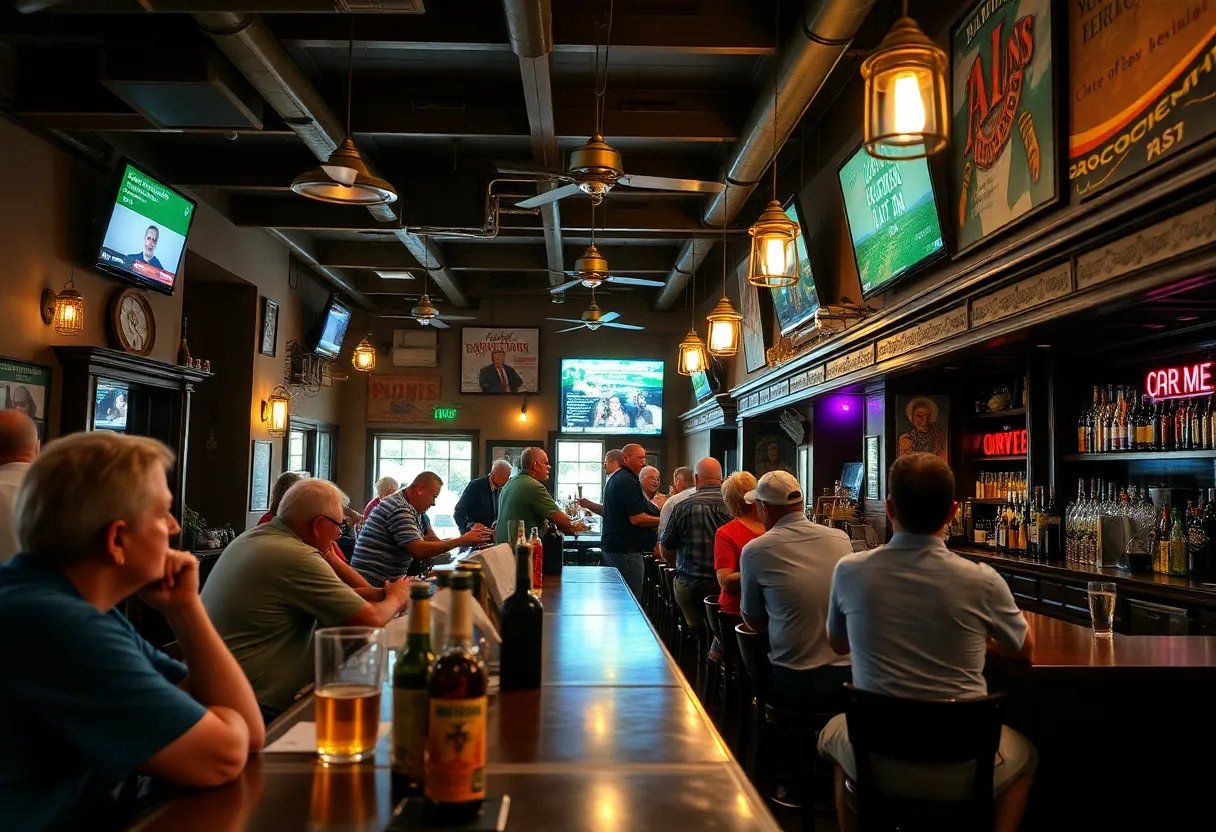News Summary
South Carolina legislators have passed bipartisan reforms to address the soaring costs of liquor liability insurance affecting bars and restaurants. The new law modifies liability rules, ensuring establishments aren’t solely responsible for damages if found less than 50% at fault. With rising insurance premiums threatening business viability, the reforms aim to support the local hospitality sector, crucial for the state’s economy, while promoting responsible alcohol service practices. Advocacy groups are pushing for further measures to enhance transparency and accountability within the industry.
South Carolina lawmakers approved a bipartisan reform bill on May 7, 2025, aimed at addressing the rising costs of liquor liability insurance for bars and restaurants. This legislation comes in response to financial challenges faced by local hospitality establishments, many of which have struggled with skyrocketing insurance premiums.
The prior legislation, enacted in 2017, mandated that businesses selling alcohol past 5 p.m. must carry a minimum of $1 million in liquor liability insurance. However, as premiums surged—some establishments reported increases from $1,500 to a staggering $28,000—many bars and restaurants faced closure due to unsustainable operating costs.
The newly passed reforms introduce significant changes to the state’s liquor liability framework. One major adjustment is the alteration of joint and several liability rules for alcohol-related incidents. Under the previous law, businesses could be held entirely responsible for damages, even if they were proven to be less than half at fault. The updated law ensures that establishments are not solely accountable for total damages if they are found to be less than 50% at fault.
In addition to the liability changes, the reform emphasizes the necessary training for individuals serving alcohol. Stricter guidelines aim to mitigate the risks associated with serving alcohol and to help prevent future incidents that could lead to liability claims.
The hospitality sector plays a significant role in South Carolina’s economy, contributing around $13 billion annually through tourism. In light of this economic importance, the bipartisan support for the legislation underscores a growing recognition of the need to support local businesses that are vital to the state’s landscape.
A statement from a business advocacy group highlighted the legislation as a necessary move against what they referred to as a lawsuit abuse crisis that had been negatively impacting small businesses throughout the state. The group noted that the legal landscape for those selling alcohol had become increasingly hostile due to high liability insurance costs exacerbated by rising claim payouts and a shrinking number of insurance providers in the market.
Charleston Mayor William Cogswell commented that the implications of high insurance costs extend beyond individual establishments and impact the city’s broader hospitality culture and economy. The hope is that the reforms will alleviate some of the financial burdens and ultimately improve conditions for both business owners and patrons.
Governor Henry McMaster expressed a sense of urgency regarding the necessary reforms, arguing that it was crucial to protect establishments from being unfairly burdened by liability costs when they were not at fault for incidents. Following the enactment of the reforms, numerous establishments previously threatened with closure, as seen with the Blind Horse Saloon, now view the legislation as a lifeline.
Despite the advancements made with this reform, advocacy groups are calling for additional measures. Recommendations include enhanced penalties for bars and restaurants that are found to contribute to alcohol-related issues while promoting responsible service practices. Additionally, some lawmakers are considering further reforms aimed at increasing transparency about how liquor liability premiums are determined.
The new legislation strives to find a balance between protecting victims of alcohol-related incidents while relieving the heavy financial pressures that can inhibit local businesses from thriving. It is expected to positively impact both the economy and the hospitality industry, providing much-needed relief to an essential sector of South Carolina’s economy.
Deeper Dive: News & Info About This Topic
- Insurance Business: South Carolina Senate Passes Liquor Liability Reform Bill
- WYFF4: SC Senate Passes Bill for Liquor Liability Insurance Reform
- WLTX: Liquor Liability Insurance Rates in South Carolina
- Cola Today: The Rising Cost of Liquor Liability Insurance
- Wikipedia: Liquor Liability
Author: STAFF HERE CLINTON
The CLINTON STAFF WRITER represents the experienced team at HEREClinton.com, your go-to source for actionable local news and information in Clinton, Laurens County, and beyond. Specializing in "news you can use," we cover essential topics like product reviews for personal and business needs, local business directories, politics, real estate trends, neighborhood insights, and state news affecting the area—with deep expertise drawn from years of dedicated reporting and strong community input, including local press releases and business updates. We deliver top reporting on high-value events such as the Festival of Discovery, Clinton Community Day, and performances at the Whitten Center Amphitheater. Our coverage extends to key organizations like the Clinton Area Chamber of Commerce and the Laurens County Historical Society, plus leading businesses in manufacturing and education that power the local economy such as Milliken & Company and Presbyterian College. As part of the broader HERE network, including HEREAiken.com, HEREBeaufort.com, HEREChapin.com, HERECharleston.com, HEREClinton.com, HEREColumbia.com, HEREGeorgetown.com, HEREGreenwood.com, HEREGreenville.com, HEREHiltonHead.com, HEREIrmo.com, HEREMyrtleBeach.com, HERENewberry.com, HERERockHill.com, and HERESpartanburg.com, we provide comprehensive, credible insights into South Carolina's dynamic landscape.






